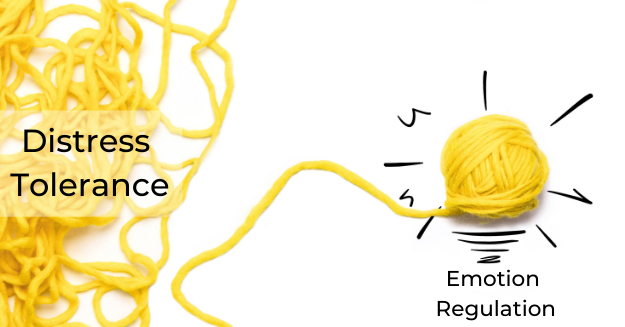
Sometimes there is some confusion regarding when to use Distress Tolerance Skills and when to use Emotion Regulation Skills.
The easy distinction is to reserve Distress Tolerance Skills for the times when we are in Emotion Mind (not Wise Mind), and we are at risk of behaving in an impulsive or reckless manner. Generally speaking, Distress Tolerance skills do not address the current problem; they help us calm down so that we can address the problem later.
Use Emotion Regulation skills for day-to-day stressors and problems. Emotion Regulation Skills focus on self-care (reducing emotional vulnerability), thinking skills (Interpreting situations accurately and without cognitive distortions), changing behavior, and problem-solving.
We need to be in Wise Mind in order to apply Emotion Regulation Skills. Goals may involve identifying emotions, identifying thoughts contributing to the emotions, and working strategies to change both thoughts and behaviors that have a direct impact on emotions.